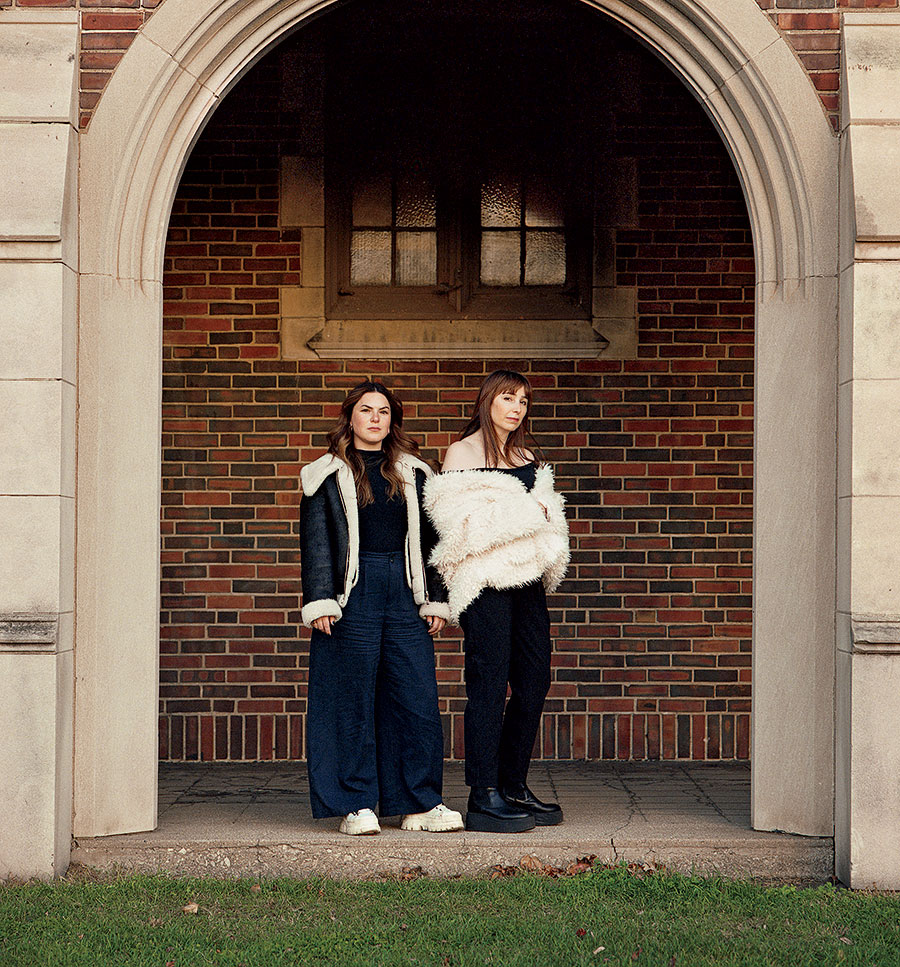Jess Robbins, the singer-songwriter who fronts the local synth-pop outfit Course, wasn’t willing to settle for just any venue or opening act for a show marking the release of the group’s second LP, the dreamy, atmospheric Tight Feathers. Which explains why it isn’t happening until January 13 — nearly three months after the October 20 release. “We really wanted to play Constellation, and Steve Dawson is opening for us. He’s an amazing musician, a real established Old Town [School of Folk Music] teacher who also has like three bands,” Robbins says. “So we had to find a day that worked for his whole band and for my whole band.”
She sees the delay as a plus. “It’s nice, you know? Then people are reminded of the record again. I’m not in a rush to do a show the minute it comes out. Now we have time to develop the show, make it more of a cool, theatrical thing.”
That semirelaxed attitude is par for Course, which Robbins formed after releasing her last solo album, 2018’s pensive, folky Lightfield. “I’ve been writing music and playing around here for like 15 years,” says the Chicago native. “I was in a rough place when I put out Lightfield, and it’s a very sad record. I just decided I didn’t want to keep going under my name — like, That’s enough of me!”
Course got a chance to play just one live show as a full band (also at Constellation) before the pandemic shutdown, which interrupted the band’s recording sessions for its first record, A Late Hour. That album was eventually finished remotely and released in 2021, earning praise from the Chicago Tribune as “an inventive collection of songs that blend nostalgic instrumentation with clever lyrics.”

For the sparser sound of Tight Feathers, Robbins stuck with just one key collaborator, backing vocalist Jamie Semel, who had appeared on both Lightfield and the first Course album. The pair worked with producer Kyle Andrews, who Zoomed in from his studio in northern Wisconsin, before recording their vocals in person at the Humboldt Park studio Jamdek. Andrews’s layered textures bolster Robbins and Semel’s ethereal harmonies, while Robbins’s lyrics on tracks like “None of Us Are Good Enough” balance Lightfield’s wistfulness with a tinge of serenity.
Paring the band down to a duo for the new record was as much a scheduling decision as an aesthetic one, Robbins says. “All of my band members work. It’s just harder to get together at our age — it’s not the same as being 19 and, like, that’s all you’re doing.”
It was a job, actually, that brought Robbins and Semel together : While an undergrad at DePaul, Semel babysat for Robbins’s twin boys. “Somehow it came up that she sang, and I was like, ‘Oh, I sing, too.’ ”
“I was like, ‘Yeah, sure,’ ” Robbins recalls, feigning an eye roll. “But she’s very quick at getting harmonies — immediate, perfect pitch, in and out. I’m lucky I found her.”
Semel, who now works in media planning for an ad firm, likes having Course as a part-time gig. “When I was younger, everyone just assumed I was going to go to school for music, but I had no interest in music as a profession,” she says. “This is, like, a cool double life. And everyone in the corporate world thinks it’s so cool: ‘A band? An album?’ ”
“Now we have time to develop the show, make it a cool, theatrical thing.”
Robbins, who has a business providing executive function coaching for high school and college students with ADHD, also likes balancing performing with work: “If I was just playing music, if I was just touring and that was everything I was thinking about, then I wouldn’t like it as much.” Even if scheduling gets tricky, the music keeps flowing. “Every other week I come into her house and she’s like, ‘I have three new songs I want to show you,’ ” Semel says.
Robbins is already itching to get to work on album No. 3, for which she says she may want the full band back in the studio. But first, she has to find out what the largely digital Tight Feathers will sound like live at Constellation.
The single “I Called You Late Last Night,” for instance, “is a very electronic song on the record, but it’s a rock song when we play it with the band — electric guitar is so different,” Robbins says. “I like that you can play it that many different ways.” That attitude, it seems, describes Course’s whole trajectory.




